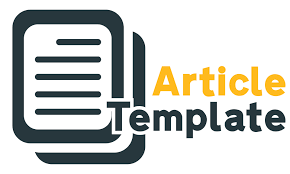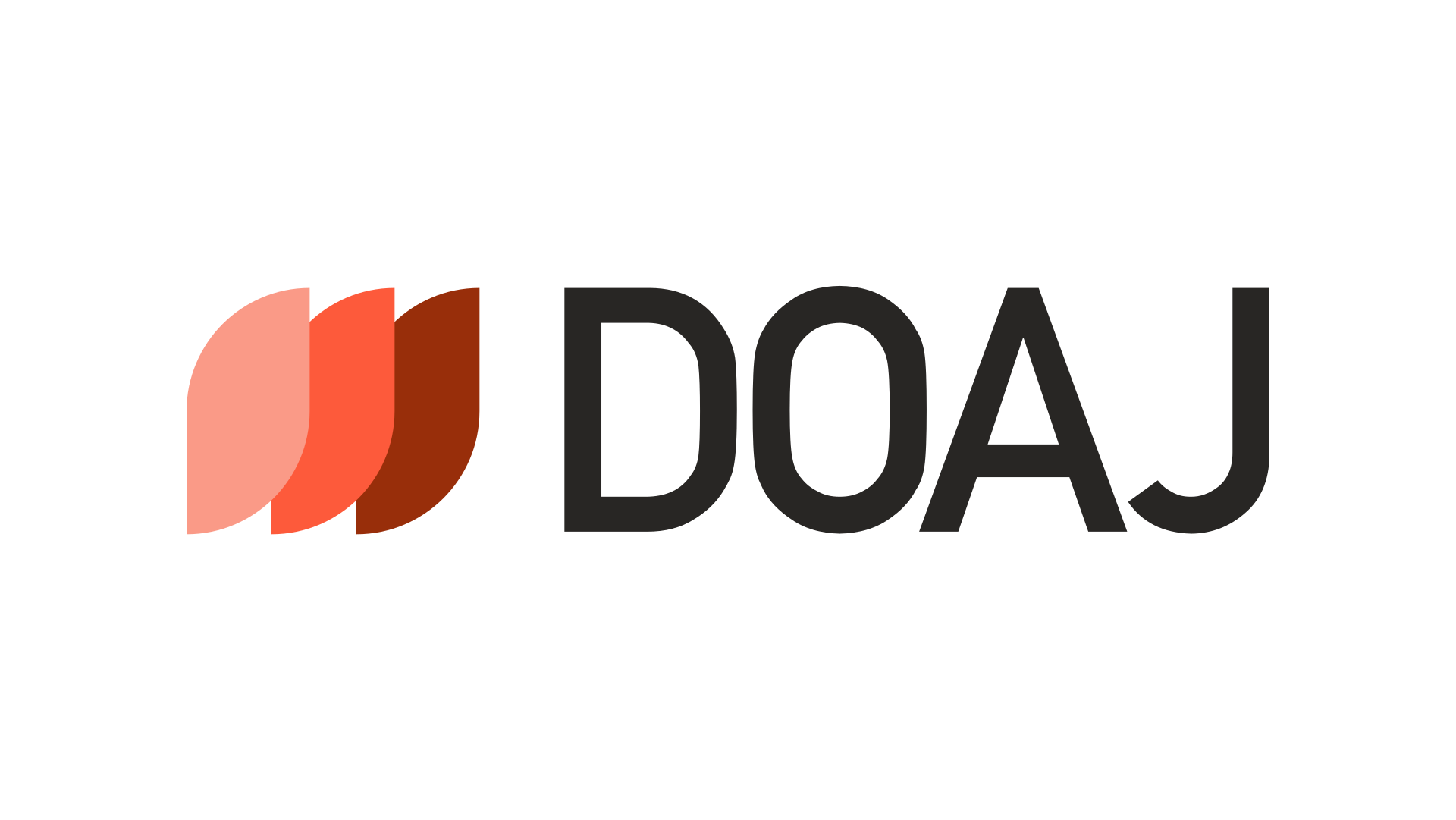The effect of business digitalization, technology utilization, and financial literacy on the sustainability of MSMEs in Surakarta
DOI:
https://doi.org/10.38043/revenue.v3i2.4841Keywords:
Micro, Small, and Medium Enterprises (MSMEs), business digitalization, technology utilization, financial literacyAbstract
Micro and Small Enterprises (MSMEs) constitute one of the business categories forming the backbone of the national economy, including in the city of Surakarta, Central Java. According to data from the Central Bureau of Statistics (BPS) in 2019, Surakarta had 1,863 micro and small business actors, employing 42,962 workers. The continuity of SMEs is anticipated to play a crucial role in strengthening the community's economy. Against this backdrop, this study aimed to analyze the impact of business digitalization, technology use, and financial literacy on the sustainability of SMEs in Surakarta. The research employed a quantitative approach, with data analysis conducted using multiple linear regression tests. The results revealed that the independent variables of business digitalization, technology use, and financial literacy each had a significant positive effect on business sustainability individually. Simultaneously, all three variables significantly influenced business sustainability. Based on these findings, it is recommended that future SMEs focus on enhancing their business digitalization, technology use, and understanding of financial literacy.
References
Articles
Adella, L., & Rio, M. (2021). Digitalisasi UMKM, literasi keuangan, dan kinerja keuangan: Studi pada masa pandemi Covid-19. STIE Perbanas Press, 11, 73–92.
Arifin, A. N., Ismail, I., Daud, F., & Azis, A. (2021). Pelatihan aplikasi Canva sebagai strategi untuk meningkatkan technological knowledge guru sekolah menengah di kabupaten Gowa. Seminar Nasional Pengabdian Masyarakat 2021 “Penguatan Riset, Inovasi Dan Kreatifitas Penelitian Di Era Pandemi Covid-19, 5, 468–472.
Arifin, Z. (2022). Strategies for building business ecosystems, digital marketing, and building customer relationships in UMKM (Onty Cake & Bakery) Pekalongan amid the Covid-19 pandemic. Journal of Administration and Business, 16(2), 111-119.
Ayyagari, M., Beck, T., & Demirguc-Kunt, A. (2007). Small and Medium Enterprises Across the Globe. Small Business Economics, 29, 415-434.
Beck, T., & Demirguc-Kunt, A. (2006). Small and medium-size enterprises: Access to finance as a growth constraint. Journal of Banking and Finance, 30(11), 2931–2943. https://doi.org/10.1016/j.jbankfin.2006.05.009
Beck, T., Demirguc-Kunt, A., & Peria, M. S. M. (2006). Reaching out: Access to and use of banking services across country. Journal of Financial Economics, 85(2), 234-266.
Chamorro-Koc, M., Peake, J., Meek, A., & Manimont, G. (2021). Self-efficacy and trust in consumers' use of health-technologies devices for sports. Heliyon, 7(8), e07794. https://doi.org/10.1016/j.heliyon.2021.e07794. PMID: 34458625; PMCID: PMC8379456.
Desiyanti, R. (2016). Literasi dan inklusi keuangan serta indeks utilitas UMKM di Padang. Jurnal Bisnis dan Manajemen, 2(02), 122-134. ISSN 2477-2801.
Eryc, E. (2022). Systematic literature review of critical success factors in online advertising. Journal of Informatics and Telecommunication Engineering, 5(2), 551–561.
Gkrimpizi, T., Peristeras, V., & Magnisalis, I. (2023). Classification of barriers to digital transformation in Higher Education Institutions: Systematic Literature Review. Education Sciences, 13(7), 746. https://doi.org/10.3390/educsci13070746
Gunawan, A., & Hudiono, R. K. (2023). Industrial revolution 4.0's information technology's impact on the growth of MSMEs in the manufacturing industries sector. ITEE (International Transaction on Education Technology), 1(2), 157-163. https://doi.org/10.33050/itee.v1i2.332
Hilmawati, & Kusumaningtias. (2021). Inklusi keuangan dan literasi keuangan terhadap kinerja dan keberlangsungan sektor Usaha Mikro Kecil Menengah. Barometer Riset Akuntansi dan Manajemen, 10(1), 135-152.
Jayanti, E., & Karnowati, N. B. (2023). UMKM Digitalization and Financial Literacy for UMKM Sustainability in Cilacap Regency. Widya Wiwaha College of Economics Business Review, 31(1), 51-64.
Kraus, S., Durst, S., Ferreira, J. J., Veiga, P., Kailer, N., & Weinmann, A. (2022). Digital transformation in business and management research: An overview of the current status quo. International Journal of Information Management, 63, 102466. https://doi.org/10.1016/j.ijinfomgt.2021.102466
Kumar, S., Tiwari, P., & Zymbler, M. (2019). Internet of Things is a revolutionary approach for future technology enhancement: A review. J Big Data, 6, 111. https://doi.org/10.1186/s40537-019-0268-2
Loo, M. K., Ramachandran, S., & Yusof, R. N. R. (2023). Unleashing the potential: Enhancing technology adoption and innovation for micro, small and medium-sized enterprises (MSMEs). Cogent Economics & Finance, 11(2). https://doi.org/10.1080/23322039.2023.2267748
Rahayu, Apristi Yani, & Musdholifah. (2017). Pengaruh literasi keuangan terhadap kinerja dan keberlanjutan UMKM Di Kota Surabaya. Journal Ilmu Manajemen, 5(3), 1–7.
Rahayu, R., & Day, J. (2015). Determinant factors of e-commerce adoption by SMEs in developing country: Evidence from Indonesia. Procedia - Social and Behavioral Sciences, 195, 142–150. https://doi.org/10.1016/j.sbspro.2015.06.423
Rahayu, R., & Day, J. (2017). E-commerce adoption by SMEs in developing countries: Evidence from Indonesia. Eurasian Business Review, 7, 25-41.
Ristanti, F., Khasanah, U., & Kuntadi, C. (2022). Literature review of the effect of MSME tax implementation, tax socialization, and tax sanctions on taxpayer compliance. Journal of Multidisciplinary Science, 1(2), 380-391.
Rohmah, N. N. (2019). The effectiveness of digitization marketing for micro, small and medium enterprises (MSMEs) in Lombok: Media Equation Theory analysis. Al-I'lam: Journal of Islamic Communication and Broadcasting, 3(1), 1-14.
Sulchan, M., Maslihatin, M. Z., Sari, E. S., Yulikah, A., & Sujianto, A. E. (2021). Analysis of government strategies and policies in providing economic stimulus to UMKM affected by the COVID-19 pandemic. JAE (Journal of Accounting and Economics), 6(1), 85-91.
Wanof, M. I., & Gani, A. (2023). MSME marketing trends in the 4.0 Era: Evidence from Indonesia. Apollo: Journal of Tourism and Business, 1(2), 36-41. https://doi.org/10.58905/apollo.v1i2.22
Yustika, S., & Kasidi, D. (2022, July). Socio-economic Impact of MSMEs in Malang City during the Pandemic Period. In National Seminar on Economic and Business Research, 1(1).
Books
Arikunto, S. (2013). Prosedur Penelitian Suatu Pendekatan Praktik. Rineka Cipta.
Mandel, E. (2006). Tesis-Tesis Pokok Marxisme. Resist Book.
Government
Association of Chartered Certified Accountants. (2014). Financial education for entrepreneurs: What next? United Kingdom: The Association of Chartered Certified Accountants. Retrieved December 10, 2018, from https://www.accaglobal.com/content/dam/acca/global/PDFtechnical/small-business/pol-tp-fefe.pdf
Badan Pusat Statistik [BPS]. (2019). Kota Surakarta Dalam Angka 2020. Badan Pusat Statistik Kota Surakarta.
Badan Pusat Statistik. (2021). Jumlah Angkatan Kerja 2011-2020. Retrieved from Badan Pusat Statistik Provinsi Jawa Tengah: https://jateng.bps.go.id/indicator/6/82/4/jumlah-angkatan-kerja.html
Law of the Republic of Indonesia Number 20 Year 2008 Concerning Micro, Small, and Medium Enterprises.
Downloads
Published
How to Cite
Issue
Section
License
Copyright (c) 2022 Muhammad Luthfi Hamdani, Naili Amalia

This work is licensed under a Creative Commons Attribution-ShareAlike 4.0 International License.











